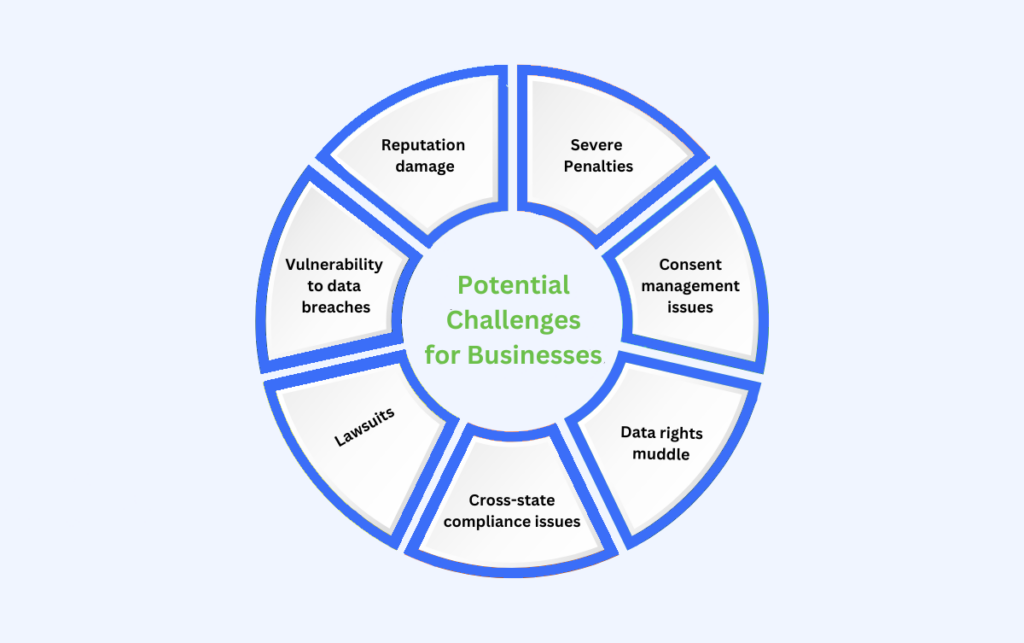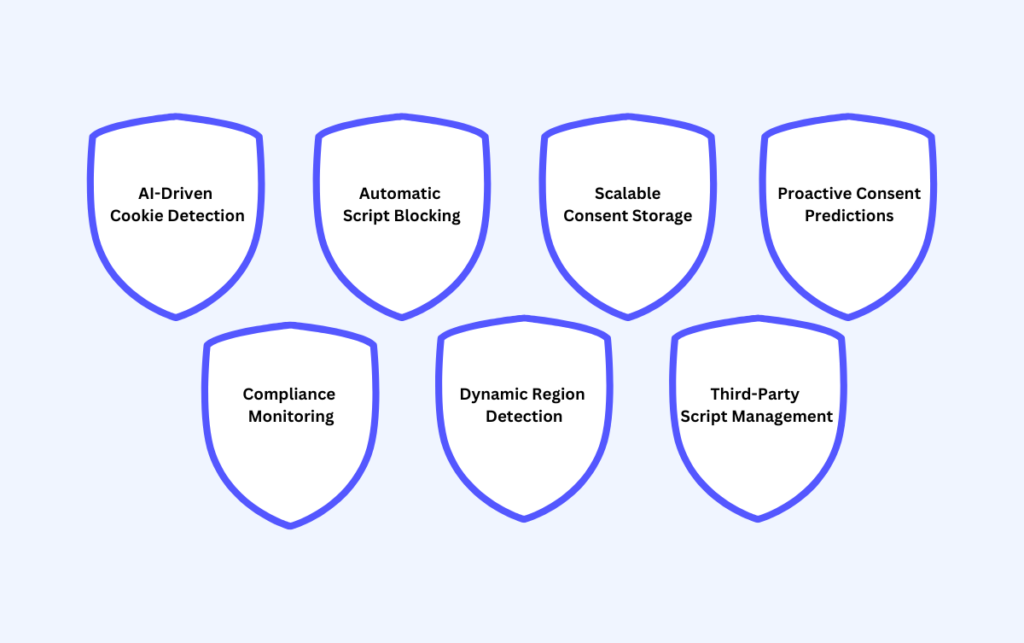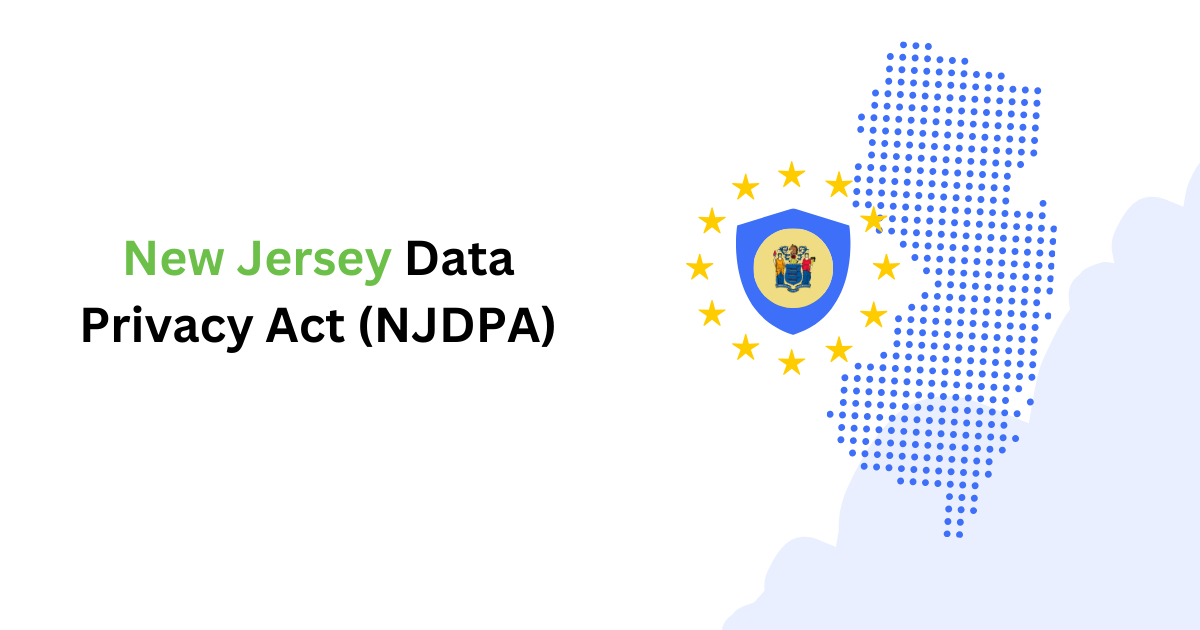New Jersey is leading in the data protection arena with the introduction of the New Jersey Senate Bill 332, which takes effect on January 15, 2025.
The first state to do so, New Jersey in 2024 makes it hot and heavy for the residents, businesses, and institutions alike. The NJDPL expands applicable definitions while stiffening exceptions and pursuing the protection of children’s privacy as its calling card for data governance.
This blog will elaborate on the key features of the NJ Senate Bill 332 and how it connects logically with the whole notion behind the law.
Unique Features of the New Jersey SB 332 (NJDPA)
| Threshold and Fines | The NJDPA applies to controllers handling 100,000+ consumers’ data or 25,000+ with data sale revenue. Fines: up to $10,000 for the first offense, and $20,000 for repeat violations. |
| Cure Period | 30 days, ending on July 15th, 2026. |
| Data Protection Impact Assessments | Required for targeted advertising, profiling, data sales, or processing sensitive data if it risks harm, unfair treatment, or intrusion on consumers. |
| Recognise Universal Opt-Out Mechanisms | Yes |
| Consumer Rights | Right to Know/Confirm Right to Access Right to Delete Right to Opt-Out of Certain Processing (Targeted Advertising) Right to Portability/Transfer Right to Opt-Out of Sales Right to Opt-Out of or Limit Sensitive Data Processing |
Why New Jersey Act was needed?
New Jersey Senate Bill 332 established, growing concerns about stronger consumer protection of data in the age of data-driven technologies.
This law closes critical gaps by holding non-profits and educational institutions accountable to adhere to privacy standards. Also, it expands the definition of biometric data, including behaviour-based analytics, something reflected in today’s trends in data usage.
In recognizing financial account information as sensitive data, the New Jersey Privacy Law 2025 brings enhanced protections against misuse, therefore meeting consumer expectations for privacy and transparency.
Potential Challenges for Businesses Under the NJDPA
Compliance with NJ Senate Bill 332 demands timely adjustments in business functions according to the newly imposed requirements. This means enhancing data security and management of consumer requests and performing actions that can prevent incurring penalties that can seriously impact operations.

Severe Penalties: Because of stringent regulatory standards, even little errors might result in significant fines.
Consent management issues: Affects overall invoices and consumer credibility.
Vulnerability to data breaches: Inadequate privacy protection exposes your company to expensive data breaches.
Lawsuits: Your customers will sue you if you have violated their privacy by taking their data or resources.
Cross-state compliance issues: Compliance becomes a real burden with different compliance requirements in different states.
Data rights muddle: Without adequate knowledge regarding the rights recently attained by consumers, improper handling of sensitive data could occur.
Reputation damage: A breach of privacy can truly cost you customers for good and damage your reputation permanently.
How This Law Can Benefit Your Business?
Here are some ways businesses can benefit specifically from the New Jersey Data Privacy Law:
- Increased Market Opportunities: Compliance opens doors with privacy-sensitive markets and partnerships.
- Streamline Operations: Encouraging efficient data collection and management.
- Limit Stakeholder Credibility: Proactively shows commitment to privacy and compliance.
- Global Alignment: Prepares the business for international privacy standards and for future laws.
Tips to Get 100% Out of Data Privacy Compliance

You need to use the right tools and approaches to realize the full potential of data privacy. Seers.AI can help you follow the rules of change using an automated approach, doing good while minimizing risk. Learn more about all of our compliance and overall business security tools.




